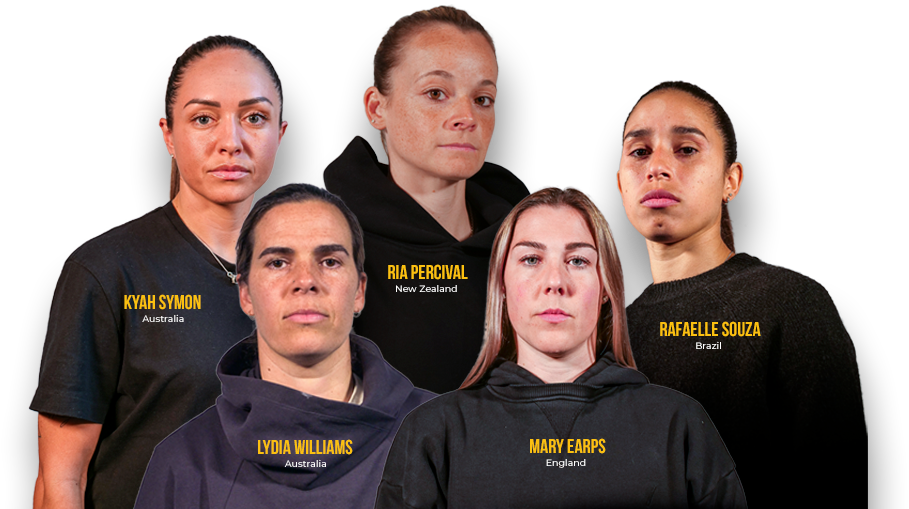





HOW PARENTS/CARERS AND THE GENERAL PUBLIC CAN #KEEPKIDSSAFE
HOW PARENTS/CARERS AND THE GENERAL PUBLIC CAN #KEEPKIDSSAFE
Preventing Child Abuse and Exploitation in Sport
We all have a part to play in keeping kids safe from abuse and exploitation. Every adult, whether you are a parent or carer, family member, someone who works with children, volunteer or involved in community sport, has a responsibility to prevent, respond and report child abuse and exploitation.
Those who have child safeguarding concerns in Australian sport, are encouraged to report to Sport Integrity Australia’s Safe Sport Hotline on 1800 161 361 – Open 7am-7pm, 7 Days a Week
Sport NZ has a variety of child protection resources available on their website for those who have a concern or are looking to prevent child abuse or exploitation in sport. Any safeguarding concerns within football in Aotearoa New Zealand in particular can be reported to NZ Football’s email: safeguarding@nzfootball.co.nz
Tips for parents/carers and others to help keep kids safe in sport:
- Research the organisation: Before enrolling your child in a sports program, thoroughly research the organisation. Look into their child protection policies, background checks for coaches and staff, and their reputation regarding child safety. Choose organisations that prioritise child protection.
- Open communication: Maintain open and regular communication with your child about their sports activities. Encourage them to share their experiences, feelings, and concerns. Build a trusting relationship where your child feels comfortable discussing anything that makes them uncomfortable or raises red flags.
- Attend practices and games: Whenever possible, attend your child’s practices, games, and events. Your presence can act as a deterrent to potential abusers and provide additional support to your child. It also allows you to observe the environment and interactions between coaches, staff, and children.
- Get to know the coaches and staff: Take the time to get to know the coaches and staff involved in your child’s sports activities. Establish a positive relationship with them and inquire about their qualifications, training, and commitment to child protection. Maintain open lines of communication with them and address any concerns promptly.
- Be vigilant: Stay alert for any signs or behaviours that may indicate abuse or exploitation. These signs can include sudden changes in your child’s behaviour, withdrawal, fear, unexplained injuries, or excessive attention from a specific adult. Trust your instincts and take action if you suspect something is wrong.
- Report concerns: If you have any concerns about your child’s safety or witness any inappropriate behaviour, report it immediately to the appropriate authorities within the sports organisation or the designated child protection officer. Follow the organisation’s reporting procedures and ensure that your concerns are addressed.
- Educate yourself: Educate yourself about child protection, signs of abuse, and appropriate boundaries in sports. Stay informed about the policies and procedures of the sports organisation your child is involved in. This knowledge will empower you to recognise and respond effectively to any potential issues.
By taking these proactive measures, you can help create a secure environment where your child can enjoy the benefits of sports while being protected from abuse and exploitation.
Further Information about Safeguarding in Sport
Visit the websites below to learn more key information about safeguarding in sport:
Preventing Child Abuse and Exploitation in Sport
We all have a part to play in keeping kids safe from abuse and exploitation. Every adult, whether you are a parent or carer, family member, someone who works with children, volunteer or involved in community sport, has a responsibility to prevent, respond and report child abuse and exploitation.
Those who have child safeguarding concerns in Australian sport, are encouraged to report to Sport Integrity Australia’s Safe Sport Hotline on 1800 161 361 – Open 7am-7pm, 7 Days a Week
Sport NZ has a variety of child protection resources available on their website for those who have a concern or are looking to prevent child abuse or exploitation in sport. Any safeguarding concerns within football in Aotearoa New Zealand in particular can be reported to NZ Football’s email: safeguarding@nzfootball.co.nz
Tips for parents/carers and others to help keep kids safe in sport:
- Research the organisation: Before enrolling your child in a sports program, thoroughly research the organisation. Look into their child protection policies, background checks for coaches and staff, and their reputation regarding child safety. Choose organisations that prioritise child protection.
- Open communication: Maintain open and regular communication with your child about their sports activities. Encourage them to share their experiences, feelings, and concerns. Build a trusting relationship where your child feels comfortable discussing anything that makes them uncomfortable or raises red flags.
- Attend practices and games: Whenever possible, attend your child’s practices, games, and events. Your presence can act as a deterrent to potential abusers and provide additional support to your child. It also allows you to observe the environment and interactions between coaches, staff, and children.
- Get to know the coaches and staff: Take the time to get to know the coaches and staff involved in your child’s sports activities. Establish a positive relationship with them and inquire about their qualifications, training, and commitment to child protection. Maintain open lines of communication with them and address any concerns promptly.
- Be vigilant: Stay alert for any signs or behaviours that may indicate abuse or exploitation. These signs can include sudden changes in your child’s behaviour, withdrawal, fear, unexplained injuries, or excessive attention from a specific adult. Trust your instincts and take action if you suspect something is wrong.
- Report concerns: If you have any concerns about your child’s safety or witness any inappropriate behaviour, report it immediately to the appropriate authorities within the sports organisation or the designated child protection officer. Follow the organisation’s reporting procedures and ensure that your concerns are addressed.
- Educate yourself: Educate yourself about child protection, signs of abuse, and appropriate boundaries in sports. Stay informed about the policies and procedures of the sports organisation your child is involved in. This knowledge will empower you to recognise and respond effectively to any potential issues.
By taking these proactive measures, you can help create a secure environment where your child can enjoy the benefits of sports while being protected from abuse and exploitation.
Further Information about Safeguarding in Sport
Visit the websites below to learn more key information about safeguarding in sport:
Educating Children about their Personal Safety
One of the most important things parents and carers can do is help children understand and identify when something doesn’t feel right or safe, and to talk to a trusted adult without fear of consequences.
Speaking with a child about personal safety should not be a one-off conversation. Rather, create opportunities that allow talking about personal safety to be part of an ongoing conversation between you and your child. Always let your child know you are there for them, and keeping them safe is your number one priority.
The 3 rules of personal safety
Bravehearts have developed the three rules of personal safety that parents and carers can teach their children:
1. We all have the right to feel safe with people. This rule teaches children and young people that they have the right to feel safe and secure where they live, play, and learn, and that no one has the right to make them do something that makes them feel unsafe or unsure.
2. It’s OK to say ‘NO’ if you feel unsafe or unsure. This rule teaches children and young people that it is OK to stand up for themselves and to be assertive if something doesn’t feel right.
3. Nothing is so yucky that you can’t tell someone about it. One of the reasons that children and young people fail to disclose harm is because they are afraid of getting into trouble. This rule helps to encourage them to speak to a trusted adult, even if something seems scary or terrible.
Educating Children about their Personal Safety
One of the most important things parents and carers can do is help children understand and identify when something doesn’t feel right or safe, and to talk to a trusted adult without fear of consequences.
Speaking with a child about personal safety should not be a one-off conversation. Rather, create opportunities that allow talking about personal safety to be part of an ongoing conversation between you and your child. Always let your child know you are there for them, and keeping them safe is your number one priority.
The 3 rules of personal safety
Bravehearts have developed the three rules of personal safety that parents and carers can teach their children:
1. We all have the right to feel safe with people. This rule teaches children and young people that they have the right to feel safe and secure where they live, play, and learn, and that no one has the right to make them do something that makes them feel unsafe or unsure.
2. It’s OK to say ‘NO’ if you feel unsafe or unsure. This rule teaches children and young people that it is OK to stand up for themselves and to be assertive if something doesn’t feel right.
3. Nothing is so yucky that you can’t tell someone about it. One of the reasons that children and young people fail to disclose harm is because they are afraid of getting into trouble. This rule helps to encourage them to speak to a trusted adult, even if something seems scary or terrible.
#KnowTheSigns of Child Abuse and Exploitation
Knowing the signs of abuse and exploitation can help give a voice to children. Sometimes children won’t understand that what’s happening to them is wrong, or they might be scared to speak out.
Responding to Disclosures or Concerns of Abuse or Exploitation
Your response to any disclosure of abuse or concerns you may have can be the first important step in stopping the abuse and protecting a child from further harm.
It is important to understand how difficult it can be for a child to disclose abuse or sexual harm. Offenders put a great deal of time and effort into ensuring the child remains silent. Some of the reasons a child may have trouble disclosing include:
- The offender has told them not to tell, often with accompanying threats such as, “they will take you away from your family if you tell”.
- They think they will get into trouble.
- They feel guilty or ashamed.
- They feel that no one will believe them.
What to do if a child or young person discloses harm to you
If a child or young person discloses to you, try to follow these steps:
- Listen carefully to all they say.
- Tell them you believe them and it’s not their fault, and do what you need to do to make them feel safe.
- Let them know you will do everything in your power to help them, but do not make promises.
- Let the child know that you will need to tell someone to help keep them safe. Whilst this may upset them, it is important that you act protectively and in the child’s best interest.
- Do not use direct or leading questions. Do not force them to talk about it, you are there to listen to what they want to tell you.
- Importantly: follow your obligation to report as soon as practically possible. When documenting, use the child’s exact words as best you can.
What to do if you suspect a child or young person is being harmed
Sometimes a child or young person’s behaviour or words may lead you to suspect or become concerned that the child is unsafe or being harmed. In this situation, it is important that you:
- Do not frighten the child or young person by asking confronting questions.
- Let the child or young person know that you are there for them if they ever need to talk.
- Record your concerns including any behavioural observations or conversations you may have had with the child or young person.
- Importantly: follow your obligation to report as soon as practically possible.
If in doubt, please contact your local helpline for guidance and support.
#KnowTheSigns of Child Abuse and Exploitation
Knowing the signs of abuse and exploitation can help give a voice to children. Sometimes children won’t understand that what’s happening to them is wrong, or they might be scared to speak out.
Responding to Disclosures or Concerns of Abuse or Exploitation
Your response to any disclosure of abuse or concerns you may have can be the first important step in stopping the abuse and protecting a child from further harm.
It is important to understand how difficult it can be for a child to disclose abuse or sexual harm. Offenders put a great deal of time and effort into ensuring the child remains silent. Some of the reasons a child may have trouble disclosing include:
- The offender has told them not to tell, often with accompanying threats such as, “they will take you away from your family if you tell”.
- They think they will get into trouble.
- They feel guilty or ashamed.
- They feel that no one will believe them.
What to do if a child or young person discloses harm to you
If a child or young person discloses to you, try to follow these steps:
- Listen carefully to all they say.
- Tell them you believe them and it’s not their fault, and do what you need to do to make them feel safe.
- Let them know you will do everything in your power to help them, but do not make promises.
- Let the child know that you will need to tell someone to help keep them safe. Whilst this may upset them, it is important that you act protectively and in the child’s best interest.
- Do not use direct or leading questions. Do not force them to talk about it, you are there to listen to what they want to tell you.
- Importantly: follow your obligation to report as soon as practically possible. When documenting, use the child’s exact words as best you can.
What to do if you suspect a child or young person is being harmed
Sometimes a child or young person’s behaviour or words may lead you to suspect or become concerned that the child is unsafe or being harmed. In this situation, it is important that you:
- Do not frighten the child or young person by asking confronting questions.
- Let the child or young person know that you are there for them if they ever need to talk.
- Record your concerns including any behavioural observations or conversations you may have had with the child or young person.
- Importantly: follow your obligation to report as soon as practically possible.
If in doubt, please contact your local helpline for guidance and support.




